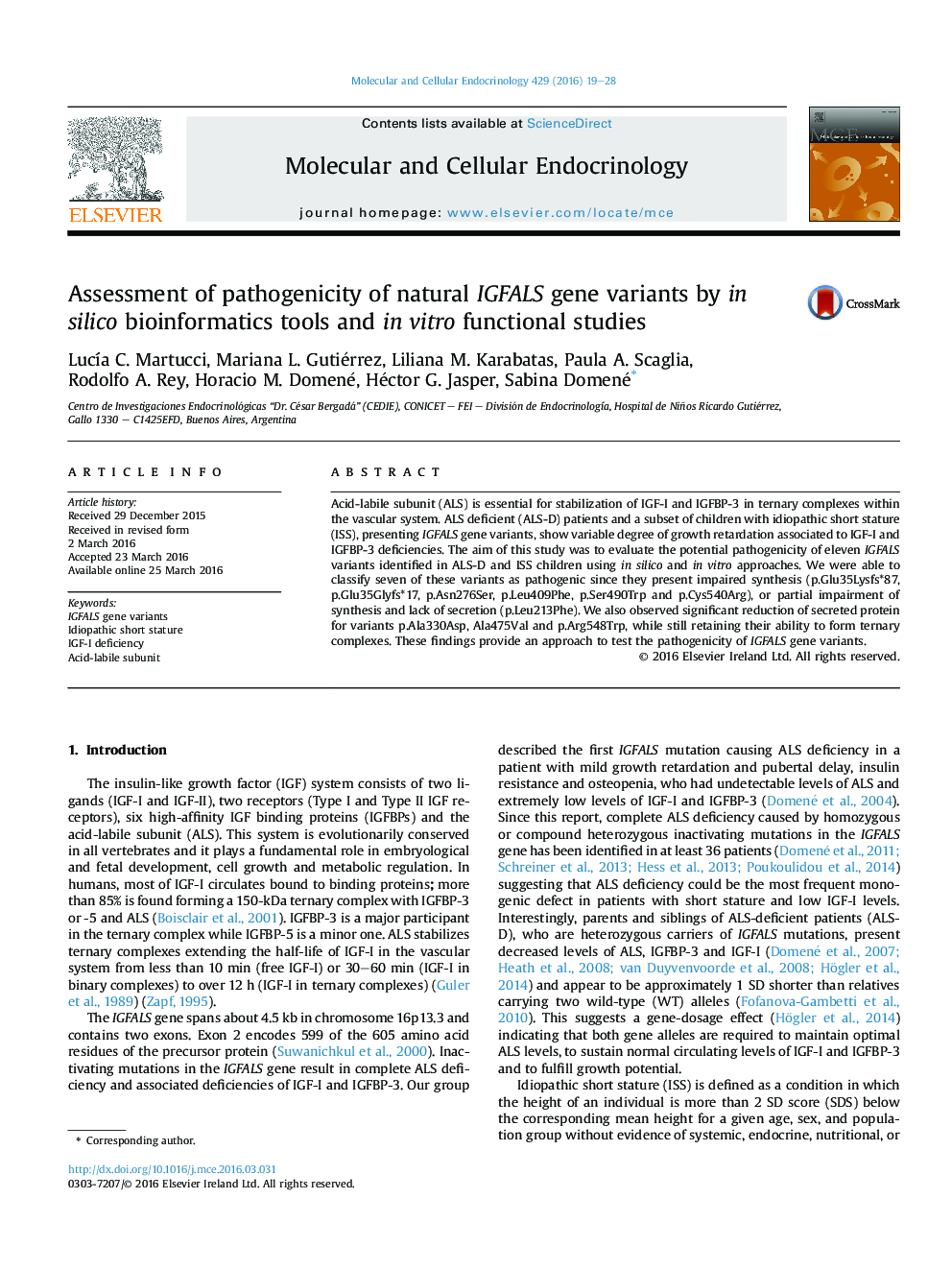| Article ID | Journal | Published Year | Pages | File Type |
|---|---|---|---|---|
| 2195562 | Molecular and Cellular Endocrinology | 2016 | 10 Pages |
•In silico and in vitro studies were useful to discriminate pathogenic IGFALS variants.•IGFALS variants found in ALS-D patients presented altered ALS synthesis or secretion.•The ALS secreted variants retained their ability to form ternary complexes in vitro.•Three of the secreted variants showed a reduction in ALS secretion.
Acid-labile subunit (ALS) is essential for stabilization of IGF-I and IGFBP-3 in ternary complexes within the vascular system. ALS deficient (ALS-D) patients and a subset of children with idiopathic short stature (ISS), presenting IGFALS gene variants, show variable degree of growth retardation associated to IGF-I and IGFBP-3 deficiencies. The aim of this study was to evaluate the potential pathogenicity of eleven IGFALS variants identified in ALS-D and ISS children using in silico and in vitro approaches. We were able to classify seven of these variants as pathogenic since they present impaired synthesis (p.Glu35Lysfs*87, p.Glu35Glyfs*17, p.Asn276Ser, p.Leu409Phe, p.Ser490Trp and p.Cys540Arg), or partial impairment of synthesis and lack of secretion (p.Leu213Phe). We also observed significant reduction of secreted protein for variants p.Ala330Asp, Ala475Val and p.Arg548Trp, while still retaining their ability to form ternary complexes. These findings provide an approach to test the pathogenicity of IGFALS gene variants.
Graphical abstractFigure optionsDownload full-size imageDownload high-quality image (422 K)Download as PowerPoint slide
